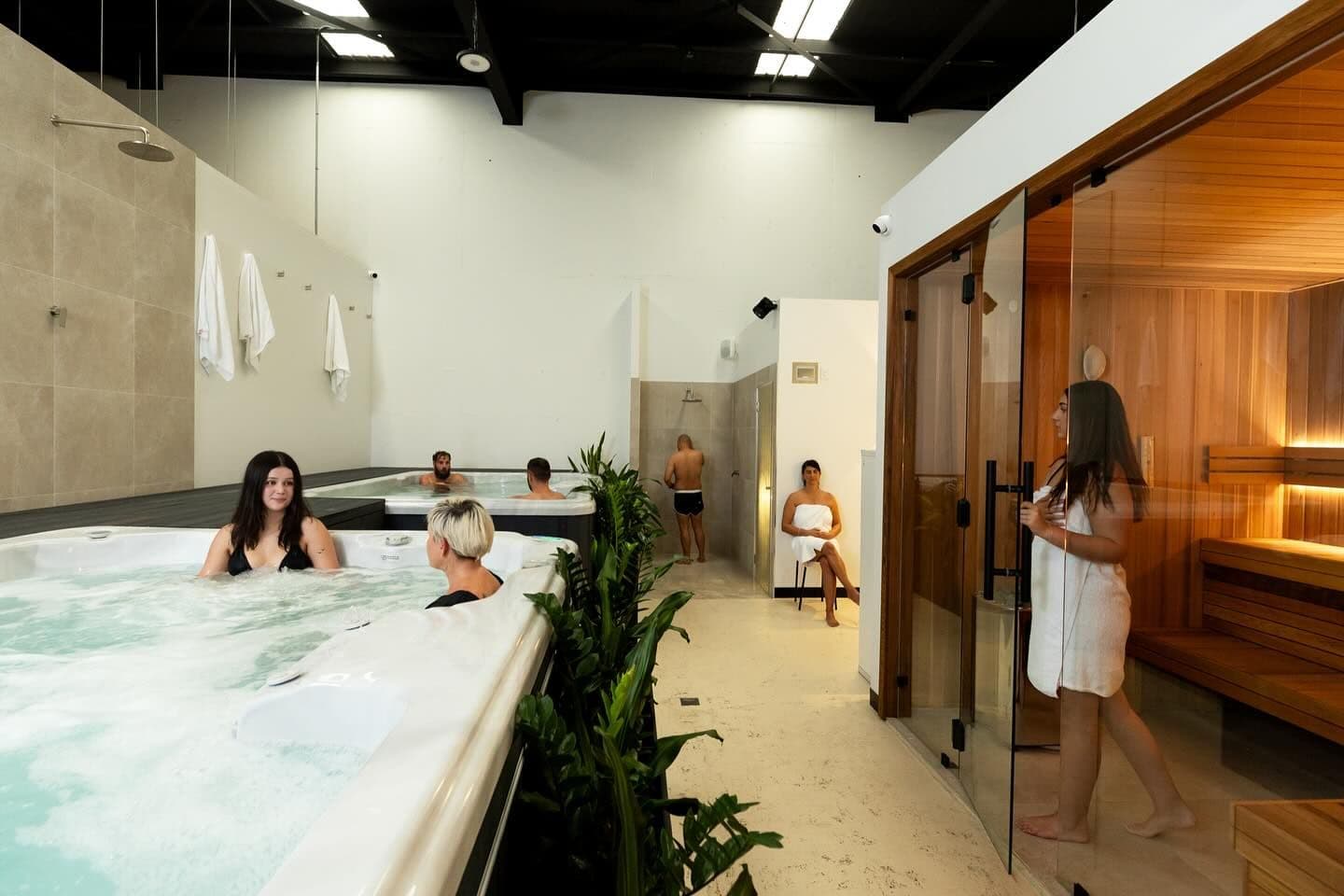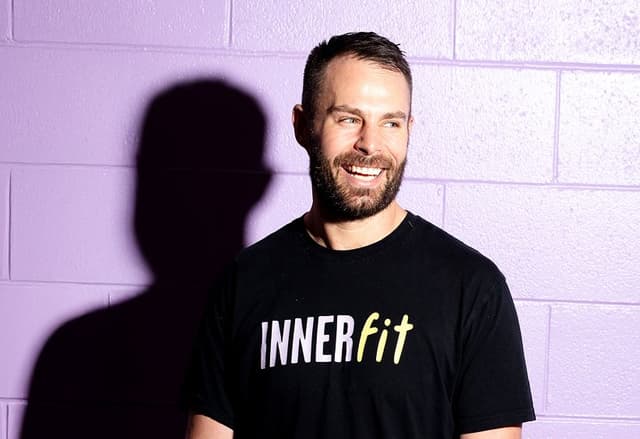
Why Recovery Is Self-Care (And Not Just for Athletes)
- /
- Blog
- /
- Why Recovery Is Self-Care (And Not Just for Athletes)
Published on 1st of October, 2025
Why Recovery Is Self-Care (And Not Just for Athletes)
When most people hear the word "recovery," they often think of athletes, intense training, sore muscles, and elite performance. But in truth, recovery is not reserved for professional sportspeople. It's something everybody needs, regardless of whether you're hitting the gym, sitting at a desk, or managing a busy life.
At InnerFit in Leichhardt, we view recovery as a form of self-care, a proactive way to support both your physical and mental well-being. In this blog, we'll explore why recovery should be part of everyone’s routine, how it impacts your health, and the accessible services that can help you feel better, function better, and live better.
Redefining Recovery
Recovery isn’t just about bouncing back from a tough workout. It's about resetting your nervous system, reducing stress, restoring energy, and caring for your body in a world that constantly demands more from it.
Think about the daily toll of modern life:
- Hours spent hunched over screens
- Poor sleep habits
- Constant exposure to stress
- Lack of movement or overexertion
These factors create physical and mental strain, even if you don’t identify as an athlete. Recovery helps counterbalance these effects.
How Recovery Benefits Everyone
- Reduces Physical Tension and Pain: Long workdays, poor posture, and sedentary lifestyles often lead to muscle tightness and joint stiffness. Recovery techniques like massage and sauna therapy help release tension, reduce inflammation, and improve mobility.
- Improves Mental Clarity and Mood: Chronic stress and mental fatigue are common today. Float therapy and contrast therapy stimulate the parasympathetic nervous system, your body’s rest-and-digest mode, which helps clear brain fog, reduce anxiety, and boost mood.
- Boosts Immune Function: Consistent recovery habits (like sleep, infrared sauna, and stress reduction) allow the body to reset and heal. This lowers the risk of illness and helps build resilience against burnout.
- Supports Better Sleep: Recovery methods regulate cortisol and support melatonin production - two hormones essential for quality sleep. A good night’s rest improves every aspect of health, from energy levels to decision-making.
- Promotes Longevity and Vitality: By reducing inflammation and supporting cellular repair (through tools like red light therapy), recovery becomes an investment in your long-term well-being - not just a short-term fix.
Common Misconceptions About Recovery
- "I’m not active enough to need recovery." Even a mostly sedentary lifestyle creates stress and tension that your body needs help processing.
- "Recovery is a luxury, not a necessity." When recovery is positioned as self-care, it becomes essential - not indulgent. You can’t pour from an empty cup.
- "Recovery means doing nothing." Not true. Many recovery methods are active and intentional - like stretching, float therapy, or sauna sessions.
Recovery as an Act of Self-Respect
Recovery isn’t just something you deserve - it’s something you need. Taking time to restore your body and mind sends a message that your well-being matters.
Whether you’re a parent, a student, a desk worker, or a busy professional, giving your body tools to recover helps you:
- Feel less tired
- Stay more focused
- Improve your mood
- Enjoy movement again
- Prevent injury and illness
That’s the real definition of self-care.
Accessible Recovery Services at InnerFit
We’ve built our recovery offering to suit all bodies, all goals, and all lifestyles. You don’t need to be a gym member or fitness junkie to benefit. Our recovery services include:
- Infrared Sauna – Relieves tension, boosts circulation, and helps you detox
- Float Therapy – Calms your nervous system, reduces anxiety, and promotes deep relaxation
- Massage (Sports & Remedial) – Eases muscle stiffness, improves range of motion, and reduces pain
- Contrast Therapy (Ice Bath & Hot Therapy) – Reduces inflammation and increases resilience
- Red Light Therapy – Promotes skin health, energy production, and cellular repair
Oasis Facilities:
- Traditional Sauna – Classic dry heat therapy for deep relaxation, circulation, and muscle recovery
- Steam Room – Improves breathing, loosens tight muscles, and relieves stress
- Warm Magnesium Bath – Soothes muscles, supports the nervous system, and promotes recovery through magnesium absorption
- Cold Plunge – Strengthens resilience, reduces inflammation, and aids recovery through cold exposure
All services are designed to help you feel better, no matter your starting point.
How to Make Recovery a Self-Care Habit
- Start Small: Begin with one recovery session per week. Whether it's a 30-minute sauna or a 60-minute float, consistency is key.
- Listen to Your Body: Are you constantly tired, stiff, anxious, or mentally drained? That’s a sign you need recovery.
- Integrate Recovery Into Your Routine: Book your sessions like you would a meeting or workout. Prioritising them helps build the habit.
- Try Our $99 Intro Recovery Plus Pack: The $99 Intro Recovery Plus Pack is the ideal way to experience our Oasis services, from sauna to float therapy and cold plunge.
- Or choose our Intro Red Light Therapy Offer to experience the benefits of cellular repair and energy renewal.
Recovery is not just for athletes -an it is for everyone living in a demanding world where energy, health, and time are stretched thin. At InnerFit Leichhardt, recovery is a core part of self-care.
Our Oasis offers everything you need, including an infrared sauna, a traditional sauna, float therapy, massage, contrast therapy, a steam room, a cold plunge, red light therapy, and warm magnesium baths.
Invest in yourself, recharge your energy, and build long-term health. Start today with our $99 Intro Recovery Plus Pack and discover how InnerFit recovery can help you feel and function at your best.

Scott: Director, Coach
“Consistency is the key to success.”
With over 15 years of experience, Scott takes a functional, no-nonsense approach to training—focusing on quality movement, strength, and overall well-being. He loves sharing his knowledge to help clients reach their goals and improve mobility. When he has the time, Scott also enjoys writing about topical fitness and wellness subjects.
